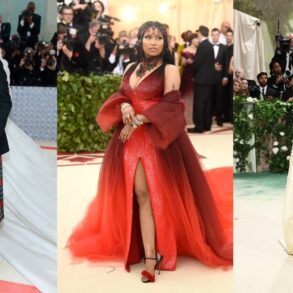Hip-hop music and culture have had a profound impact on student life across America. What started as an underground movement in the Bronx during the 1970s has evolved into a global phenomenon, influencing everything from fashion and language to social activism and self-expression. Hip-hop’s influence on student culture extends beyond music, shaping fashion, language, and social norms, offering rich material for exploration and analysis in essays that delve into its impact on contemporary youth, making it a fascinating subject to write essay for me. For many students, hip-hop is more than just music – it’s a way of life that shapes their identities, values, and worldviews.
The Origins of Hip-Hop Culture
Hip-hop culture emerged from the struggles and resilience of African American and Latino communities in the South Bronx, New York City. It was a creative outlet for young people facing poverty, violence, and racial discrimination. DJs like Kool Herc and Grandmaster Flash pioneered the art of mixing and scratching records, while MCs (rappers) like Grandmaster Caz and Busy Bee used their rhymes to tell stories and express their experiences.
As hip-hop music spread across the country, it gave voice to marginalized youth and provided a platform for social commentary. Legendary groups like Public Enemy, N.W.A., and A Tribe Called Quest tackled issues like racism, police brutality, and inner-city life, inspiring a generation of students to question authority and fight for social justice.
Fashion and Style Influence
One of the most visible influences of hip-hop on student culture is fashion and style. From baggy jeans and oversized t-shirts to snapbacks and Air Jordans, hip-hop fashion has become a ubiquitous part of student dress codes. Brands like FUBU, Rocawear, and Wu-Wear were founded by hip-hop artists and have become staples in many students’ wardrobes.
Hip-hop fashion is not just about looking cool; it’s also a form of self-expression and cultural identity. For many students, wearing hip-hop clothing is a way to connect with their roots and embrace their heritage. It’s a visual representation of their values, beliefs, and life experiences.
Language and Slang
Hip-hop’s influence on student culture resonates deeply, fueling creativity, activism, and self-expression, making it an intriguing area of study where the guidance of the best research paper writing service can enhance understanding and analysis. Hip-hop has also had a significant impact on the way students communicate. Slang terms and phrases from hip-hop songs have become part of everyday language, particularly among young people. Words like “dope,” “chill,” “flow,” and “fo’ shizzle” have transcended their origins in rap lyrics and are now used in casual conversation.
This influence on language goes beyond slang words; hip-hop has also shaped the way students express themselves through storytelling, wordplay, and metaphor. Rappers like Nas, Jay-Z, and Kendrick Lamar are celebrated for their lyrical prowess and ability to paint vivid pictures with their words, inspiring students to explore their creativity and find their own unique voices.
Social Activism and Empowerment
Hip-hop has always been a platform for social commentary and activism, and this ethos has resonated with many students. Artists like Tupac Shakur, Lauryn Hill, and Common have used their music to address issues like police brutality, racism, and social injustice, inspiring students to get involved in their communities and fight for change.
Hip-hop has also been a powerful force for empowerment, particularly for marginalized groups like women, LGBTQ+ individuals, and people of color. Feminist rappers like Queen Latifah and Salt-N-Pepa challenged gender norms and promoted body positivity, while artists like Frank Ocean and Lil Nas X have embraced their identities and helped break down barriers in the hip-hop community.
For many students, hip-hop provides a sense of belonging and validation, fostering a culture of self-expression and acceptance.
Hip-Hop in Education
As hip-hop’s influence on student culture has grown, educators have recognized its potential as a teaching tool. Programs like Hip-Hop Education and Flocabulary use rap music and lyrics to engage students in subjects like math, science, and history, making learning more relatable and enjoyable.
Some schools have even incorporated hip-hop into their curricula, offering courses on hip-hop history, culture, and music production. These classes not only teach students about the roots of hip-hop but also encourage them to explore their own creativity and develop critical thinking skills.
Challenges and Controversies
Despite its positive impact, hip-hop culture has also faced criticism and controversy, particularly regarding its portrayal of violence, misogyny, and drug use. Some argue that certain hip-hop lyrics and music videos perpetuate negative stereotypes and promote harmful behavior.
While these concerns are valid, it’s important to recognize that hip-hop is a diverse and multifaceted culture. Not all hip-hop music promotes negative messages, and many artists use their platforms to address social issues and promote positive values.
Additionally, the controversy surrounding hip-hop has sparked important conversations about censorship, artistic freedom, and the role of media in shaping cultural narratives. These discussions have encouraged students to think critically about the media they consume and to become more discerning consumers of popular culture.
Conclusion
Hip-hop’s influence on student culture is undeniable. From fashion and language to social activism and self-expression, hip-hop has left an indelible mark on the lives of young people across America. Whether it’s through music, art, or community engagement, hip-hop has provided students with a powerful means of exploring their identities, challenging societal norms, and finding their voices.
As hip-hop continues to evolve and adapt to new generations, its impact on student culture will undoubtedly endure. For many students, hip-hop is more than just a genre of music – it’s a way of life that shapes their values, perspectives, and aspirations.
This post was originally published on this site be sure to check out more of their content.







